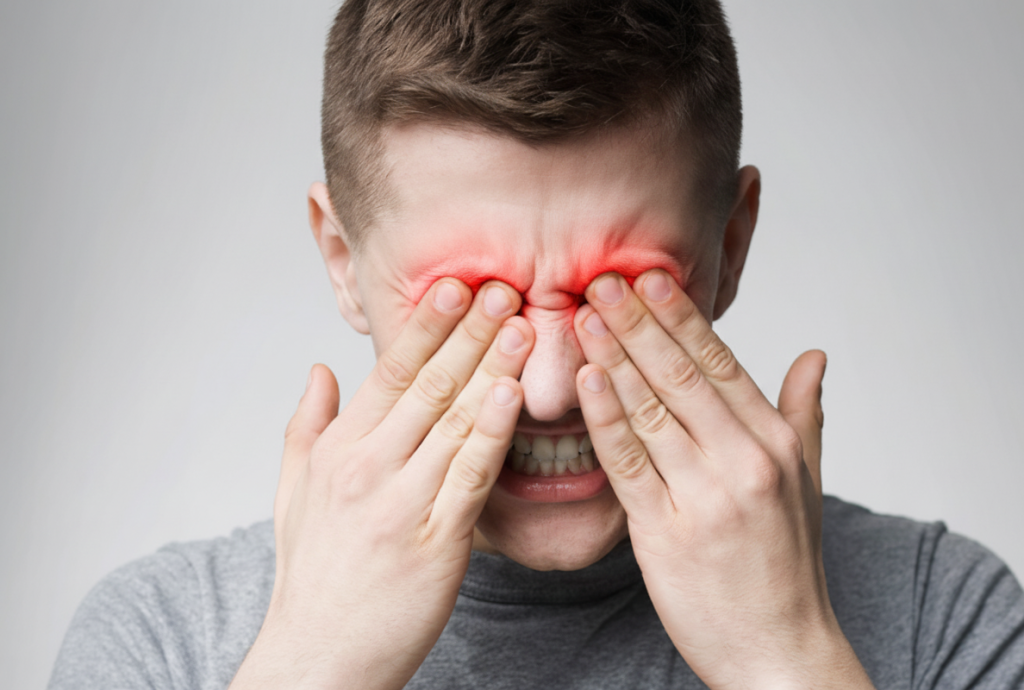
Cataracts are common. They happen when the clear lens in your eye gets cloudy. Many people focus on the main symptoms of cataracts. These include blurry vision or colors that look faded. You may also worry about difficulty seeing at night. But can cataracts cause a feeling of burning in your eyes?
The direct answer is generally no. Burning, stinging, or irritation is not a primary or typical symptom of cataracts. However, eye discomfort can be a tricky topic. Eye problems often coexist. One issue can easily be mistaken for another. It is vital to see your eye doctor if you feel a burning sensation.
What are the Common Cataract Signs?
To understand burning eyes, first look at what cataracts truly cause. Cataracts develop slowly. They may show a few signs early on. The symptoms that do appear relate directly to the clouding of your eye’s lens. This is how light is affected when it enters your eye.
Key Cataract Symptoms Include:
- Cloudy or blurry sight: This is the most often cited symptom.
- Fading of colors: Things look less bright or yellowed.
- Halos around lights: You may see circles around light sources at night.
- Increased light sensitivity: Bright lights become uncomfortable.
- Trouble with night sight: Driving after dark becomes much harder.
- Frequent changes in prescriptions: Your glasses or contacts no longer seem correct.
If you have burning eyes, your doctor will likely look for other causes first.
Why Do My Eyes Feel Like They Are Burning?
If you feel burning or stinging, the cause is probably not the cataract itself. Several other common eye conditions lead to this type of irritation. Your eye doctor is skilled at pinpointing these issues.
Common Causes of Eye Burning:
- Dry Eye Disease: This is the most frequent cause of burning. Your eyes do not make enough tears. They may also make tears of poor quality. Dry eyes feel scratchy, gritty, or like they are burning. This feeling often worsens late in the day or in dry air.
- Eye Allergies: Dust, pollen, or pet dander can make your eyes burn. Allergies usually also cause redness, itching, and watery eyes.
- Blepharitis: This is irritation of the eyelids. It can cause a burning or gritty feeling.
- Infections: Conditions like pink eye (conjunctivitis) can lead to burning.
It is possible to have both cataracts and one of these irritations. Getting a thorough exam will clarify your specific cause of burning eyes.
The Connection Between Cataracts and Discomfort
While not a direct cause, an advanced cataract might indirectly cause discomfort. An extremely cloudy lens makes seeing very difficult. When your sight is severely impaired, you may strain your eyes greatly.
Straining to see can make your eyes feel tired. Sometimes this fatigue leads to a vague discomfort. You may rub your eyes more often. Rubbing can introduce irritants or make existing dryness worse. The resulting feeling may be described as burning or tired. This is secondary irritation, not a cataract symptom.
How Your Doctor Checks for Issues
An eye exam is the only way to know for sure what is causing your symptoms. This kind of exam goes beyond just checking your sight. It lets the doctor see the entire structure of your eye.
Key Diagnostic Steps:
- Visual Acuity Test: This standard test reveals reduced sight. It checks for blurry vision, a main cataract indicator.
- Slit-Lamp Exam: Your doctor uses a special magnifying device. This lets them look closely at your lens. They can spot even small cataracts here. They can also check the front of your eye for signs of dry eye or blepharitis.
- Dilated Fundus Exam: Your pupils are widened with special drops. This full view helps assess the cloudiness of the lens. It also helps check the overall health of your retina.
- Dry Eye Assessment: If you report burning, your doctor will test your tear quality and production. They may use special dyes to look for dry spots on your eye’s surface.
This comprehensive approach helps the doctor separate the cataract problem from the burning problem.
When to Schedule an Appointment
Any change in your sight or new discomfort means it is time for a visit. Do not dismiss a persistent burning sensation. It is a sign that something in your eye health needs attention.
Important Guidelines:
- New Symptoms: If you notice burning or stinging that lasts more than a day, book an exam.
- Vision Changes: Blurry sight or difficulty seeing at night must be checked right away.
- Age-Based Visits: If you are over age 40, you should get a full eye exam at least every two years. After age 65, an exam is necessary every year. A full exam means more than just a quick sight check.
Treatment Focuses on the Cause
Your doctor will treat whatever issue they find. If it is only a cataract, cataract removal surgery is the only path to restored sight. If your burning eyes are due to dryness, treatments are different.
Treating Dry Eye Symptoms:
- Lubricating Drops: These artificial tears can soothe the burning.
- Prescription Drops: Some medications help your eyes make more of their own tears.
- Warm Compresses: These can help with blepharitis, which often links to dryness.
Treating Cataracts:
- Surgical Removal: Cataract surgery removes the cloudy natural lens. It replaces it with a clear artificial lens. This procedure is safe and common. It restores clear sight. It will also help with glare and faded colors.
Remember that clear sight and comfort go together. Taking care of one often helps the other. If you feel burning or notice sight changes, speak to your eye doctor. They are the best person to guide you to better eye health.
Ready to take the next step toward a clearer vision? Schedule a consultation with SuraVision today to discuss your options and learn more about Cataract Surgery. Call us at 713-730-2020 or book your appointment online!

